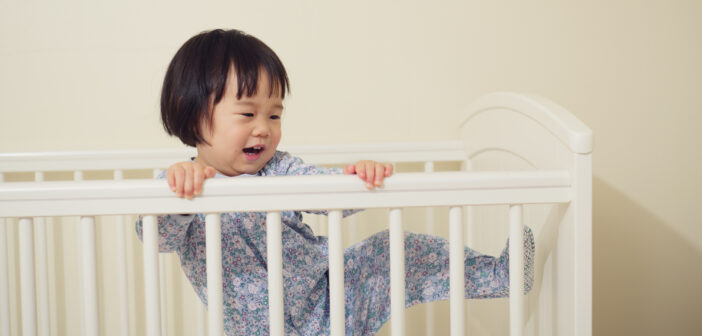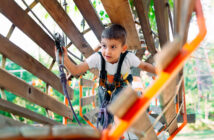Just when you’ve got your baby’s sleep down to a science, you see the dreaded note on the calendar— Daylight Saving Time begins Sunday, November 6. If you’re worried your baby or toddler’s established sleep patterns will shift and make you sleep-deprived, don’t be. As a certified child sleep consultant at Good Night Sleep Site, these are the concerns I hear from parents every fall and spring, but with a few tips, you can and will get through this. Read on for ways to help your baby get a good night’s sleep (and you, too) when the clocks fall back.
Here are 5 tips for helping your baby sleep during Daylight Savings
Create a conducive sleep experience
Where your child sleeps matters—if they are in a room that’s too bright, loud, or hot, it can lead to sleep difficulties. Start by always making sure they sleep in the same place night after night so they associate this spot with bedtime. Then, create a space for better sleep using good shades or blackout window treatments, making the room dark and primed for a restful night—and remember, it can never be too dark for a baby or toddler’s sleep environment. I recommend using a white noise machine to muffle sounds because even noises like birds chirping can cause your child to wake up. Lastly, ensure the room is between 68-72°F and your child is wearing a sleeper or onesie that’s right for the season.
Gradually adjust your baby’s schedule
If your child is sensitive to schedule changes (or you want to start early), slowly adjust their schedule the week before the time change. Here’s how you do it—bump your schedule later by 15-minutes every couple of days. That way, when the clocks “fall back,” your child is already adjusted to the new time. If you choose this approach, modify the entire schedule, including feedings, naps, and playtime.
Jump right in
If you can’t ease into it, or you forget, try the “rip the bandaid off’ approach by setting your clocks to the new time before you go to bed on Saturday night. Then, follow the new clock time right from your family’s wake-up time on Sunday morning (this is my tried and true approach with my own family). Most babies and toddlers with healthy sleep habits and no sleep debt can adjust to the new time without real issues.
Give it time
Regardless of your approach, it will take your child (and you) a few days and up to a week to adjust to the clocks going back by one hour. The key is to remain consistent during sleep times and not let any bad habits creep into your routine. Inconsistencies and bad practices can lead to sleep-deprived kids not knowing what to expect. By staying consistent, you can avoid sleep chaos during the week.
Get out in the sun
Getting exposure to natural sunlight helps reset our internal clocks. During awake times, go outside and bask in the sun together. Going on walks, swinging at the playground, or laying on a blanket in the sun can help ease your child into the new time change—and rest assured, they will be back on schedule before you know it.
Do you have any great tips for helping your kids through Daylight Savings? Let us know!
Become an NJMOM Insider! For all the best things to do with your family around New Jersey, sign up for our weekly newsletter delivered right to your inbox each week, and don’t forget to tag your photos #NJMOM and @njmom for a chance to be featured on our social media.








